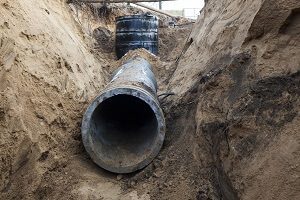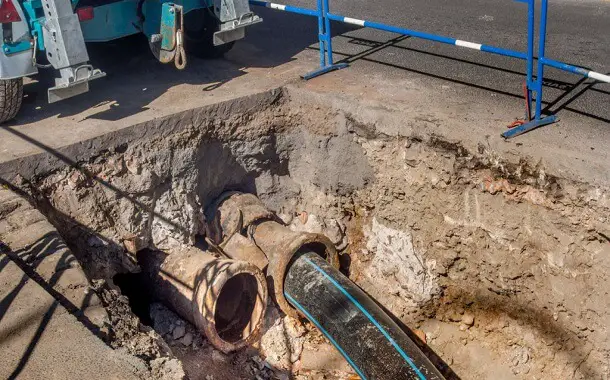Cost to Connect to a Public Sewer
In order to protect the environment and public and community health according to very strict requirements of national legislation, domestic, industrial and stormwater wastewater must be collected so that there is no seepage from the sewer system. It then has to be transported and subjected to extreme cleaning processes (purification) so that, once brought in a comparable or better condition than that of river water, it can be discharged into them, thus being returned to nature.
Public sewer systems take wastewater and rainwater from all consumers and transport it to sewage treatment plants.
How Much Does it Cost to Connect to a Public Sewer?
In order to recover some of the expense of running the sewer lines, a city or town will charge considerable hookup fees to enable you to connect to the system. According to our online research, the fees charged around the United States would start at around $2,200 and go up to more than $8,500 only for the connection. Keep in mind that these are only connection fees and do not include the costs of a plumber that you will need to hire to help you with the connection at the public sewer system.
Plan on spending anywhere between $1,700 and $5,500 on a private plumbing contractor who will handle connecting your house to the city sewer branch. This will bring the total cost anywhere between $3,800 and more than $14,000, depending on the complexity of the job and the distance. Make sure you get multiple quotes from plumbers in your area because all of these jobs and there is no standard price.
You might also like our articles about the cost of septic systems, land subdivisions, or water leak repairs.
For example, in Portland, Oregon the city sewer connection charges include sewer line charges which are around $2 per assessable square foot of property, based on the area within 100 feet of the sewer line; the sewer system development costs around $5,000 for a single-family residence and the branch costs around $5,500 per branch.
If you live in New Hampshire, be prepared to pay almost $2,400 for the one-time hookup fee for a single-family detached residential structure, plus a fee of $60 for the residential use.
Locations within 100 feet of a public sewer main from San Diego have to pay anywhere between $1,200 and $4,500 for the on-time connection capacity fee.
According to members of the Trulia forum, only the hookup fee would be anywhere between $2,500 and $11,000. Some of the members said that there are cities and townships where it is mandatory to hook up to the public sewer system when you buy a new house.
Also, a member of the City Data forum said that his brother had to pay around $4,300 to trench a new sewer pipe from the house to the street, plus $4,800 for the capital recovery fee.
Connecting to a public sewer details
The one-time hookup fee to the city sewer should be included in the estimated costs we presented above. Though, this connection is done only at the end that connects to the actual sewer and provides a branch to your home in the place where your sewer system can be connected. The connection of your actual pipes to the branch will not be included in the city sewer hookup fee.
No matter where you live, the process of connecting to a sewer will be the same. In general, this involves the application process, permits, inspections, hiring a professional to install the lines to your home, trenching the sewer line, and filling the trench line.
What are the extra costs?
 The project will require an inspection and permits, and these come at an extra cost. Also, you should plan on spending some extra money if the inspection does not pass and there will be some extra work necessary.
The project will require an inspection and permits, and these come at an extra cost. Also, you should plan on spending some extra money if the inspection does not pass and there will be some extra work necessary.
The costs with the public sewer don’t end with the connection. Depending on the city bill, you will have to pay annual, quarterly, or monthly fees. Depending on the place where you are living, the majority of the annual fees can be charged by the amount of water being used by the household or as a flat rate. So, taking into consideration these factors, you should plan on spending anywhere between $680 and $3,200 each year.
Also, you should consider the costs of landscaping your yard after the sewer work is done.
How can I save money?
There are special loans and state programs for homeowners who meet certain income requirements. For instance, homeowners from Portland, Oregon, with a low income can benefit from a 5% interest loan, with a deferred payment option. Make sure you check with your local state if you are qualified for any of these programs, so you can save some money.


Leave a Reply
Want to join the discussion?Feel free to contribute!